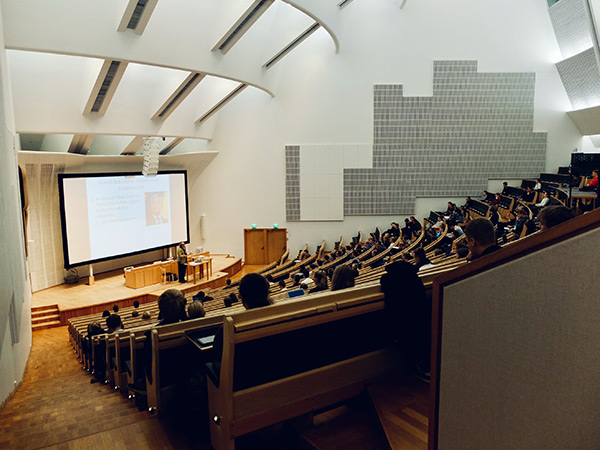Sakura Mentor
Comparison of Masters in Japan and India - Part 1
Rahul Maroju
Updated in September 2023
In this column, I would like to share some basic details of pursuing Masters in Electrical Engineering in my alma mater in India and Japan. The universities compared are Indian Institute of Technology Hyderabad (IITH), India and The University of Tokyo (UTokyo), Japan. The programs referred here are regular programs, i.e., for regular students and not special programs such as the ones for experienced professionals.
Programs:
In IITH, there are two types of Masters – MTech (TA) Program with a 2-year duration and MTech (RA) Program with a 3-year duration. The RA Program is identical to the TA program but distributed over 3 years to give greater emphasis on research. There are five specializations mentioned below.
1. Communication and Signal Processing (CSP)
2. Microelectronics and VLSI (Micro)
3. Power Electronics and Power Systems (PEPS)
4. Systems and Control (SysCon)
5. Artificial Intelligence & Machine Learning (AI & ML)
In UTokyo, Masters in Electrical and Electronic Engineering Course is a 2-year program. However, some students join as a research student for 6 months or more before they start their Master’s program officially, making the total duration 2.5 years. There are 4 broad areas of study as below.
1. Environment and energy
2. System control and space
3. Nano physics and devices
4. Biotechnology and complex systems
For ease of comparison, the TA Program in IITH is compared with that in UTokyo.
Admission:
In IITH, there are two rounds of admission in this program in August and January. In UTokyo too, there are two rounds of admission in September and April.
For entry into IITH, the candidate must first decide what specialization program among the five options to apply. Next, the Graduate Aptitude Test in Engineering (GATE) examination must be taken in the subject applicable for the program. This is a standard test required by most universities for pursuing post-graduation in engineering in India. The program will be applied with this score. After a few months, the shortlisted candidates will be invited to a written test and interview which will be based on respective GATE syllabus with emphasis on topics related to the selected specialization.
To pursue a program in English at UTokyo, the International Multidisciplinary Engineering (IME) program is suitable. If shortlisted, a written and oral examination will be conducted which can be conducted online with the prospective supervisor.
The main difference is that in IITH, during application, the desired specialization should be selected, whereas in UTokyo, the desired supervisor with whom the candidate wishes to join the program for research should be selected. Naturally, as the interests of the supervisor can be classified into one of these specializations, it is indirectly decided, but not explicitly needed for the application. On the other hand, in IITH, the supervisor will be allocated after the 1st semester. The students submit an order of preference for supervisors and the result depends on their GATE score and the grade point average (GPA) of the semester.
 Dom Fou for Unsplash
Dom Fou for Unsplash







